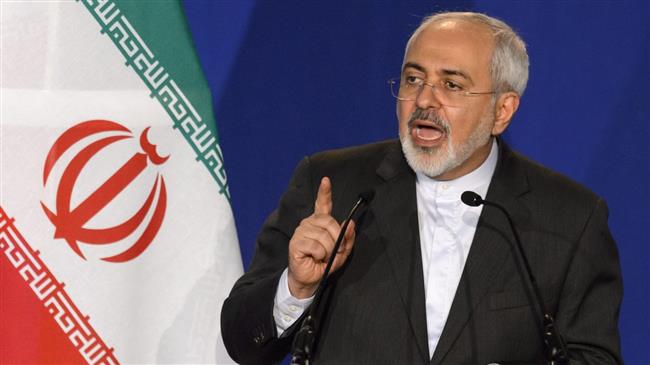Iran slams US 'outlaw regime' for quitting another treaty
Iran's Foreign Minister Mohammad Javad Zarif says the United States government has proven its reputation as an "outlaw regime" by quitting yet another international treaty out of spite for Iran.
US abrogated JCPOA -a multilateral accord enshrined in UNSC Resolution 2231- arguing that it seeks a bilateral treaty with #Iran. Today US withdrew from an actual US-Iran treaty after the ICJ ordered it to stop violating that treaty in sanctioning Iranian people. Outlaw regime. https://t.co/soi0CGOhO0
— Javad Zarif (@JZarif) October 3, 2018
US Secretary of State Mike Pompeo announced Wednesday that the US was cancelling the 1955 Treaty of Amity with Iran, after the International Court of Justice (ICJ) ordered Washington to halt the unilateral sanctions it recently re-imposed on "humanitarian" exports to the Islamic Republic.
The treaty established economic relations and consular rights and was signed during the terms of former US President Dwight Eisenhower and former Iranian Prime Minister Hossein Ala.
Iran filed a complaint with the ICJ -- the principal judicial organ of the United Nations -- in July after US President Donald Trump's decision in May to quit the 2015 nuclear deal with Tehran, known as the Joint Comprehensive Plan of Action (JCPOA).
Trump said back then that he would reinstate sanctions removed as a result of the multilateral accord while introducing tougher sanctions against the Islamic Republic.
The ICJ's top tribunal – known as the World Court -- concluded Wednesday that US assurances that the sanctions won’t hurt humanitarian aid “were not adequate."
The Hague-based court then ordered Washington to remove sanctions that impeded "the free exportation to Iran of medicines and medical devices, food and agricultural commodities" as well as airplane parts.
"Another failure for sanctions-addicted USG and victory for rule of law," Zarif wrote in a tweet after the ruling.
UN top court rules that US must comply with obligations violated by re-imposing sanctions on Iranian people when exiting #JCPOA. Another failure for sanctions-addicted USG and victory for rule of law. Imperative for int’l community to collectively counter malign US unilateralism. pic.twitter.com/8AMGL0tqXU
— Javad Zarif (@JZarif) October 3, 2018
Under the JCPOA-- originally signed by the US, the UK, France, China, Russia and Germany-- world's major aircraft makers had been allowed to strike deals with Iran in order to renovate its ageing fleet of passenger planes.
Although the US Congress had blocked almost all of Iran's post-JCPOA civil airplane purchases, Trump's decision to stop implementing the nuclear accord meant that companies like Boeing and Airbus could no longer sell Iran vital airplane components either.
Pompeo defended Washington's withdrawal from the 1955 agreement in a statement, saying the US should have done so decades ago.
"Today marked a useful point with the decision that was made this morning from the ICJ. This marked a useful point for us to demonstrate the absolute absurdity of the Treaty of Amity between the United States and the Islamic Republic of Iran.” he said.
The ICJ's rulings are legally binding and non-appealable.
Relentless Israeli ceasefire violations justify need for self-defense: Lebanese MP
Tel Aviv tells Damascus Israeli forces will remain in occupied territory: Report
Dec. 22: ‘Axis of Resistance’ operations against Israeli occupation
‘Abhorrent’: Oxfam says only 12 trucks delivered aid in North Gaza since Oct.
VIDEO | Leader receives religious eulogists on Hazrat Fatima birth anniv.
Pope Francis slams Israel’s ‘machine-gunning’ of Gaza children
US hostage-taking of Iranian nationals violation of intl. law: Deputy FM
VIDEO | Carol Singers for Palestine on London’s Parliament Square










 This makes it easy to access the Press TV website
This makes it easy to access the Press TV website